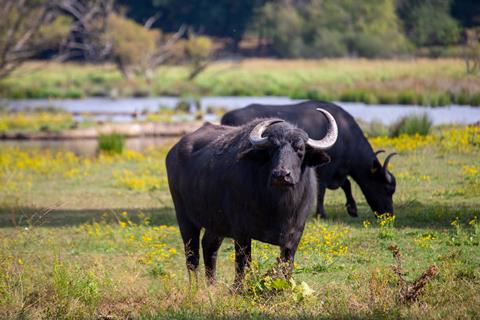
Meat and dairy exports from Germany to the UK have been halted after the country confirmed its first case of the highly contagious foot and mouth disease in nearly 40 years, triggering fears of shortages as importers scramble for alternatives.
Germany lost its status as free from foot and mouth disease under World Organisation for Animal Health requirements after confirming an outbreak of the livestock disease in a herd of water buffalo on the outskirts of Berlin last week, meaning veterinary certificates needed for exports outside the EU can no longer be issued.
The UK’s Defra confirmed on Tuesday morning the import of cattle, pigs and sheep and their products from Germany – one of Britain’s biggest meat and dairy suppliers – had now been banned to “protect farmers and their livelihoods”.
Disruption to supply of meat and dairy goods in the UK was to be expected following the decision, said Agriculture & Horticulture Development Board head of animal health and welfare, Mandy Nevel.
The ban affects exports of meat and meat products, hides and skins and blood products, as well as milk and dairy products.
“It means that ham, gammon and bacon, as well as product like salami from Germany, will not be allowed into the UK”, Nevel said. “We are expecting some disruption to supply.”
Germany is the third largest exporter of pigmeat to the UK with an 18% market share, as well as the second-largest exporter of dairy products to the UK with a 12% market share, AHDB data showed.
Between January and October 2024, the UK imported from Germany around 117,340 tonnes of pigmeat worth £448m, 130,000 tonnes of dairy worth £283m, as well as 6,796 tonnes of beef worth £23.2m and 85 tonnes of sheepmeat valued at £963,000 - according to AHDB.
Another leading industry source said “if companies are looking for alternative suppliers in non-affected countries, the process of sourcing vets and obtaining the relevant information required takes some time to arrange, so shortages are possible in the short term as the sector adjusts”.
Andrew Opie, director of food & sustainability at the British Retail Consortium, confirmed there might be “a temporary impact on the availability of certain products imported from Germany; however, retailers are working hard to keep disruption for customers to a minimum whilst respecting the government restrictions in place”.
The Grocer understands port health authorities are ramping up border controls on goods coming in from Germany, according to customs operators.
UK Chief Veterinary Officer Dr Christine Middlemiss said: “We have robust contingency plans in place to manage the risk of this disease to protect farmers and Britain’s food security, which means using all measures to limit the risk incursion and spread of this devastating disease.”
Farming minister Daniel Zeichner added the government would “not hesitate to add additional countries to the list if the disease spreads”.
”With these targeted measures in place the risk of contaminated meat making its way into the UK is unlikely”, the industry source said.
But the news comes amid growing concerns over port health authorities’ ability to intercept both commercial and personal meat imports due to budget cuts.
The Efra committee recently launched an inquiry on “the stringency of biosecurity controls” at the borders amid “continued concerns that large quantities of illegal meat are being brought into the UK”.
AIMS, formally known as The Association of Independent Meat Suppliers, is now calling for the government to ban all personal imports of meat products derived from pigs and ruminants.
“The recent outbreak of FMD has now led to the UK banning imports of live animals and meat and dairy products from Germany”, said Jason Aldiss, executive director at AIMS.
“However, personal imports of meat products continue to enter the country unchecked, particularly through our airports. This loophole presents a significant biosecurity risk, as both FMD and African Swine Fever (ASF) viruses can survive in fresh and cured meat products for extended periods, remaining highly infectious”, he added.
Keighley & Ilkley MP Robbie Moore said in a statement it was “deeply concerning to hear about the confirmed outbreak of foot and mouth disease in Germany”, which ”will no doubt be incredibly worrying for all involved in the livestock sector, and indeed the wider agricultural industry.
”It is vital we keep alert to developments and all stay vigilant”, he added. ”Our borders must be secure – so that we don’t risk the disease entering the UK. The consequences of it doing so are unthinkable.”
Britain last had an outbreak of foot and mouth disease in 2007, and before that in 2001. The highly contagious virus does not pose a risk to humans, but it affects cloven-hoofed animals including cattle, sheep, and pigs, and can be a cause of major disruption for livestock industries and international trade.
The 2001 FMD outbreak resulted in the slaughter of over six million animals and caused financial losses estimated at £8bn at the time.
“For a government that stresses the need for food security they need to implement an immediate and comprehensive prohibition on all personal imports of meat products from pigs and ruminants, regardless of origin”, Aldiss said.
“They must also invest in robust screening and enforcement measures at all UK entry points, be they ports, the channel tunnel and especially airports to prevent illegal meat imports”, he added, “and allocate resources to bolster our preparedness and response capabilities against exotic animal diseases”.
German agriculture minister Cem Özdemir said the priority was to ensure the disease, first recorded in the Brandenburg region, did not spread. Local authorities have culled the infected animals and implemented a days-long ban on transporting cows, pigs, sheep, goats and other animals such as camels and llamas in the region to prevent further spread.
Meat exports to the EU were likely to continue, the ministry said, as they do not require export health certificates. Current rules allow the bloc’s member states to stop exports from the specific regions that are directly suffering from an infectious disease rather than the whole country.







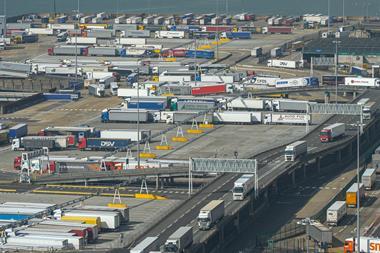
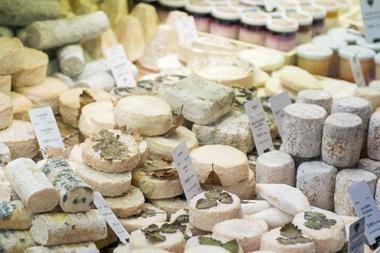
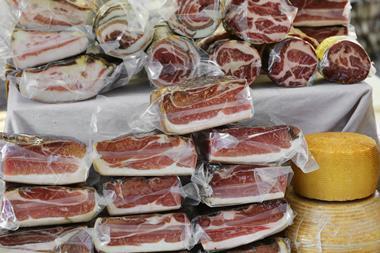
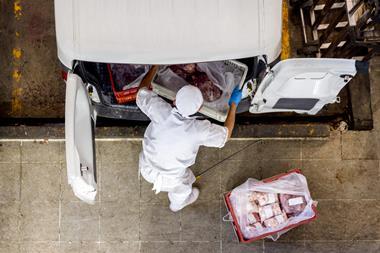

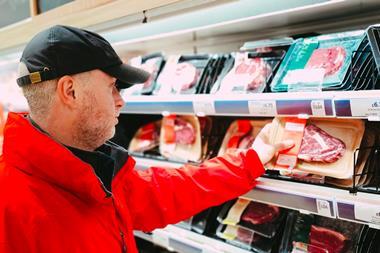






No comments yet